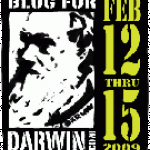blogosphere
It's Ada Lovelace Day!
Ada Lovelace (1815 - 1852) is often referred to as the world's first computer programmer. The daughter of the famous poet Lord Byron, and the admired intellect, Annabella Milbanke, Ada Lovelace represented the meeting of two alternative worlds: the romanticism and art of her father versus the rationality and science of her mother. In her attempt to draw together these polar opposites and create a 'poetical science' during the Victorian age, Ada collaborated with the renowned mathematician and inventor, Charles Babbage. (source)
I'm betting famous names like Marie Curie…
The Sleeping Venus (1944)
Paul Delvaux
Observatory is a new collaborative art space located in Brooklyn, where it is reportedly sandwiched between Proteus Gowanus, Cabinet Magazine, and the Morbid Anatomy library. Its illustrious proprietors include Pam of Phantasmaphile, Joanna of Morbid Anatomy, and D&M of Curious Expeditions. And if that's not reason enough to be excited, tonight they are hosting a talk by Kathryn Hoffmann of the University of Hawaii at Manoa, entitled "Reveries of Sleeping Beauty: Slumber and Death in Anatomical Museums, Fairground Shows, and Art."
I saw Dr. Hoffmann…
Illustration by David Parkins, Nature
Today, Nature released a news feature by Geoff Brumfiel on the downturn in mainstream science media. We've all known that this is happening; the alarms become impossible to ignore when Peter Dysktra and his team at CNN lost their jobs last year. For mainstream outlets like CNN or the Boston Globe to cut science may seem appalling - but in an unforgiving economic climate which has already triggered the collapse of major newspapers like the Seattle Post-Intelligencer, such cuts are logical, because science reporting isn't a big money-maker. The question…
I know I've typed out some howlers in my day, so I say this with all due humility. But this post over at iO9 had me rolling on the floor last night:
Paul Murtaugh, a statistician at Corvallis' Oregon State University, claims that our carbon legacy isn't just limited to our own emissions, but 50% of our children's (The other parent gets the other 50%). And 25% of their children's, and so on, and so on. He arrived at this estimate using math: Murtaugh used UN population projections, which say that after 2050, birth rates in all countries will be 1.85 children per woman, on average. Then he took…
Essays are like cupcakes: they're tasty, abundant, idiosyncratic, and small enough to finish without feeling you've overindulged - which leaves you vulnerable to the self-deception that just one more is a good idea. So here are some weekend reading suggestions for a lazy Sunday.
--At SEED, Carl Zimmer's love letter to natural history museums as functional wonder cabinets:
Gradually, royalty's cabinets of wonders turned into libraries of flesh and rock, where scholars could research the workings of the world. Ole Worm, a 17th-century anatomist, became famous for his collection of narwhal…
While reading the New Yorker yesterday I came across this gem of a quote from the late John Updike, which eloquently expresses one of the ideas I was reaching for in my own Darwin Day post.
The non-scientist's relation to modern science is basically craven: we look to its discoveries and technology to save us from disease, to give us a faster ride and a softer life, and at the same time we shrink from what it has to tell us of our perilous and insignificant place in the cosmos. Not that threats to our safety and significance were absent from the pre-scientific world, or that arguments against…
Yesterday I prepared to write my Darwin Day post by attending a panel discussion at the Center For American Progress here in DC. The discussion was ostensibly about "evolution, transcendence, and the nature of faith," which led my friend Colin and I to hope for a spirited debate - perhaps even a die-hard creationist who would speak for the three-quarters of frequent churchgoers who don't accept evolutionary theory! But what we got was a predictable, rather boring discussion - at least until David Sloan Wilson arrived and threw me for a loop.
The first two panelists were Rev. Dr. Susan Brooks…
I'm working on my Darwin Day blog entry for the Blog for Darwin swarm/carnival. In the meantime, you can have a little Darwin Day frivolity of your own by devolving yourself into an Australopithecus, courtesy of the Open University.
I hope it goes without saying that this is definitely not a scientifically accurate activity. But I'll say it anyway.
Speaking of frivolity, have you wished Darwin happy birthday on Facebook yet?
Effect Measure -- inspired by a thoughtful note from bird-flu ace reporter Helen Branswell -- ponders the implications of the increasing lack of specialization, and thus deep subject-specific expertise, among MSM reporters.
The conclusion we draw from this is that if you really want to know what's going on
in the flu world you shouldn't depend on newspapers as a source of information but go to the next (meta)level, where news, comment, the peer reviewed science literature and the gray literature of official reports, press releases, and rumor filters are done better (or at least different…
I have been making a lot of noise about science-y blog carnivals that were experiencing extinction events, but through our efforts, my wonderful colleague and friend, Kevin Zelnio, has stepped in to manage the Circus of the Spineless! So let's help Kevin by offering to host this blog carnival and by sending in our blog entries of "the other 95%" of earth's species: those without backbones! (Keep in mind that I am talking about species without backbones, not individual politicians, so please adjust your submissions accordingly).
Okay, what's happening here, you guys? It seems that yet another blog carnival, Oekologie, has gone the way of the passenger pigeon. And I even volunteered to host this blog carnival by leaving a message on the site, but my message was discarded. I am happy to help rescue science-y blog carnivals, but I need some help, and some of that help can come in the form of (1) ASKING me and others to host the carnival when the host list has diminished to less than three future hosts, (2) not ignoring people who are actually coming out of their basement lairs to volunteer to host a particular carnival…
I stirred some ire last week when I asserted that the Times (for -- disclosure dept -- whom I sometimes write) and similar mainstream papers offer a public good through their unique combination of a) access to information and 2) clout with the public and government. Several readers took me to task (see the comments section of the post linked above), arguing that these papers have failed their public mission by dropping the ball several times lately, most notably during the run-up to the Iraq War. "Let the dinosaur die," is the argument. In a similar vein, some science bloggers (see this post…
Look, it's Ken's "Buddy" Allan! ("All of Ken's clothes fit him!")
This is my all-time favorite example of unintended scandal in advertising. I assume that this tagline somehow sounded okay in the 60s, but come on - those quotation marks are provocative regardless of the decade, because they're just so unnecessary*
Now via Pure Pedantry, I've discovered that there is an entire blog devoted to gratuitous quotation marks and their unintended consequences.
Wonderful! I laughed and laughed this morning. Definitely worth adding to the blogroll.
The "blog" of "unnecessary" quotation marks
*Alas,…
ScienceOnline09 kicks off tonight. Formerly known as the Duke Blogging Conference, it's a weekend of interactive sessions on science blogging with lots of Sciblings and others representing the science blogging collective. Follow along on the conference wiki or Scibling Bora's blog for all the details.
I am extremely disappointed that I am too sick to go and co-chair the arts sessions with Glendon Mellow, but I made the right decision, because I am not getting better - I spent Wednesday at the State of the Net conference only a few miles from home, and I was destroyed afterward. I'll be…
Okay, there are only a few days left to vote for Curious Expeditions in the 2008 Weblog Awards! M and D really deserve recognition for their amazing, eclectic travelogues, so if you're a fan, please go vote for them - and if you're not a fan yet, check them out.
Orlando
Antique brass findings and hardware, leather, velvet, wood, tacks, cast/painted plastic, glass eyes
Jessica Joslin 2008
This weekend, some work will be done on Sb, so no posts (or new comments) will be updated for a day or so. I'll post to let you know when the drought is over. :)
In the meantime, there are many great events to keep you occupied this weekend. if you're in Philly, head over to the Mutter Museum dance party (!) tonight. Yes, that is a skeleton in a disco wig.
If you're in San Francisco, Velvet da Vinci is holding an opening reception tonight at 6pm for Hilary Pfeifer's…
Neuroskeptic has written a great post evaluating the much-hyped 2008 study that showed people will more readily accept information if a neurosciency-explanation is attached - even if the neuroscience is irrelevant.
If this effect is real, it has big implications for those of us involved in science/health communication - when to use this advantage, and when to eschew it? (Especially when we're trying to explain neuroimaging studies. . ?) And what is the source of this bias - mass media's ongoing love affair with neuroscientific explanations and pretty brain pictures? Or something else entirely?
I love reading DCist's collections of overheard quotes. This week they have a great indicator of poor science literacy among the DC public:
On the Corner of 13th and F last week:
Guy 1: "You know who's frozen?"
Guy 2: "Who's that?"
Guy 1: "Walt Disney. As soon as he died, they froze him using generics."
Guy 2: "You mean genetics?"
Guy 1: "Yeah, genetics. Whatever."
Both dudes clearly meant cryogenics, not genetics (at least they knew "generics" wasn't quite right.) But cryogenics is wrong too - cryonics is the correct term for freezing people with the intent to revive them later. Also, Walt…
If you have a moment, please pop over and welcome new Scibling Rebecca Skloot of Culture Dish:
I blog about whatever catches my attention, which makes Culture Dish hard to categorize (though the tagline "Science, Writing, and Life" pretty much covers it). Generally speaking, I post about science and ethics (like the use of DNA for racial profiling, and questionable studies of fake blood), as well as science writing, the ethics of science book reviewing, and anything I stumble on related to the history of science.
(I first read her blog title and thought "Cool! she dishes about culture!" The…
Assuming you have some downtime to digest, vegetate, and recover from the holidays, here's a cookie plate of links. Enjoy!
Boing Boing Gadgets presents "How it works. . . The Computer." Hilarious.
Via Morbid Anatomy, I found Monster Brains' repository of Krampus ephemera. For those in blissful ignorance, the Krampus is a grotesque devil figure that abuses young children as part of traditional Christmas festivities in Germany. Yikes!
Speaking of children, these vintage illustrations are, um, shocking:
From "30 ways to die of electrocution" flickr set by bre pettis.
Erratic Phenomena has…





